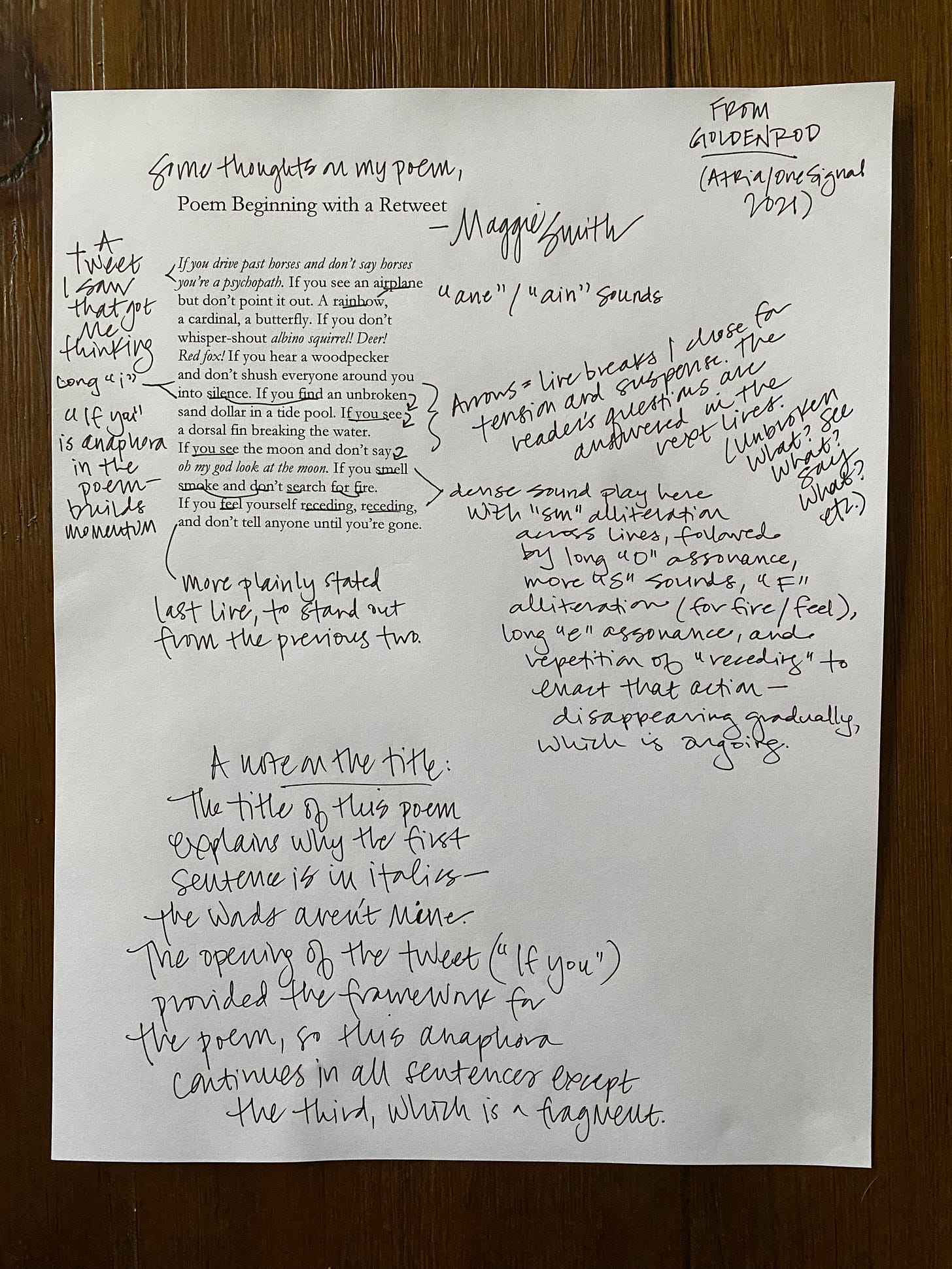Craft Tip
Word Choice & Word Placement
Hi, Friend.
Let’s talk about word choice. After all, each word weighs a ton in a brief poem. (I’m picturing the ACME anvil in one of those Coyote-and-Roadrunner cartoons.) When I’m working on a poem, I have to think carefully about which words best serve the poem and where. (And this isn’t just a poetry thing. I think about word choice and placement with essays, too, because I want every sentence to be a beautiful sentence.)
The key is reading your work aloud as you write and revise. You can’t see the rhythm in a line or sentence, you have to hear it. You can’t always see where the music is happening—assonance, consonance, alliteration, rhyme—but your ear will know. Trust your ear.
For example, in “Poem Beginning with a Retweet,” I chose to place rainbow first in the list of three words—“A rainbow, a cardinal, a butterfly”—for two reasons.
One, the syllable count of that word is lower than the other two. As I read aloud various possibilities, I liked the rhythm better with the shorter, simpler word first—almost a kind of “revving up” to the longer words.
Two, I wanted the word rainbow to be closer to the word airplane to play up the assonance—the repetition of similar vowel sounds—in those two words. They share a beautiful, bright long A. Looking at the poem now, I also like how the word don’t at end of the following line plays on the long O in rainbow.
Assonance comes up later in the poem with smoke and don’t. There’s also consonance there, the repetition of similar consonant sounds: you can hear the Rs in the phrase “search for fire.” Reading the poem aloud, you can hear S and F alliteration—the repetition of initial consonant sounds—in the words smell, smoke, and search and for and fire. I broke smell and smoke across two lines to tone down, just slightly, the alliteration in this section of the poem. Smoke and search are more subtle together on the same line, because the initial consonant sounds S and SM aren’t a perfect match.
My two cents: It’s hard to overdo assonance but easy to overdo alliteration. Too much alliteration can veer into “Peter Pecker picked a peck of pickled peppers” territory before you know it. To tone down the effect, slightly vary initial sounds and/or create some distance between alliterative words, either with line breaks or intervening words.
Above all, read aloud as you go. Trust your ear.
Happy writing—
Maggie



Thanks Maggie,
This is just what I was hoping for when I joined your list! Good thought for first thing in the morning.
Lizzie